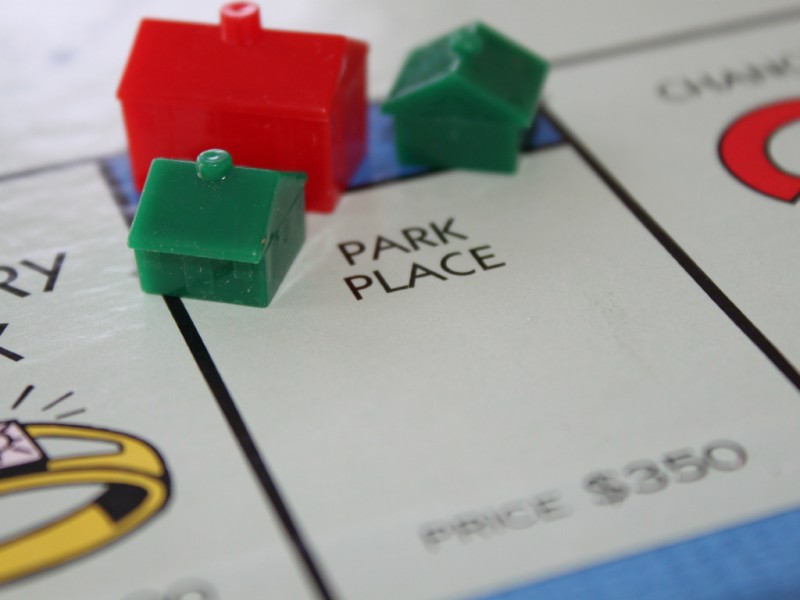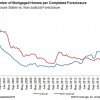What do we do with the homes and houses that we buy?

You might be wondering, what in the world do we do with all of the homes we buy. When we decide to purchase a home, we constantly have for that specific property in mind and stop target. Our offer price along with our end goal (or exit strategy) is generally different determined by the place and state of the house we want to purchase. If you have ever played monopoly then the idea is very similar.
These are the primary exit strategies when we use when we decide on buying a house, we choose:
1. Repair the Home and Sell It.
We buy homes all over the USA. So when we buy a home in a city we have done our research on, we wind up leasing it to a local resident and remodel the property. We generally hire a local property management company that can take good care of the daily businesses, they will usually repair any issues like leaking faucets or bathrooms that are broken.
Years later, if there’s good appreciation in the marketplace, we might put the house for sale ad try to make a profit.
2. Repair the Home and Sell it.
When the home is in a marketplace with low rents, we might preferably fix the house up and sell it for market value. After we repair all the legal issues and remove any liens, our team will hire a contractor that will gut the home and replace virtually everything with completely new stuff. In addition, we paint it, remodel the restrooms alter the carpeting, and sometimes even purchase some new furniture and appliances. We subsequently hire a home staging specialist who decorates the house with inviting artifacts.
3. Repair the Lease and Home Option It
A lease option is what many people call a rent to own arrangement. Sometimes, we’ll rent the home to a neighborhood resident and provide her the “option” to purchase the before a set date (normally between 3 and 6 years), at a predefined cost. The cost of the house is corrected to account for inflation. This really is invaluable for those who are thinking of buying a house but do possess the cash for a down payment, or not eligible for a mortgage loan due to nonexistent or poor credit record.
4. Sell The Home As Is
If rents are not high enough to support the home we might still purchase the house. What we do is fix it up and sell it as a turnkey property fully rented to another investor. Typically a local investors, but in addition institutional investors including other forms of funds and REITs. A house that needs small repairs could be sold to a property investor as a “handyman special”. A handyman special is not a total rehabilitation, and a property that needs small repairs. The investor will often remodel the home and resell it to an investor.
5. Wholesale The Option Contract to Another Investor
We might wholesale the contract to another investor just like us when we see that we’ve a house that needs a bit more work or is in a place where we’re not interested in possessing. Wholesaling a home means selling the contract for a small fee, typically around $5,000 US. For instance, we might have a house under contract for $120,000 but the actual market value (after repairs) is $160,000. In this instance, we might sell the contract of $120,000 to a local “rehabber” who’ll invest $20,000 in repairs, plus the $5,000 on the contract assignment fee. The investor will finally sell the house for retail cost, thereby making $15,000 in gain.
6. Partner With Other Real Estate Investors
Sometimes, when we get the chance to purchase a house in a town we’re not really comfortable with, we elect to partner up with a property investor with local knowledge. While the local investor uses his local expertise and geographical location edge to purchase the home, repair it, promote it and sell it in this case, our firm or one of our private lenders might supply the resources. The gains from this type of deal are shared between both parties. The loan is payed back before the gains are shared, if a private money lender was utilized to fund the deal.
At the close of the day, no matter the exit strategy we carry out, the ending effect is [generally] money-making. At exactly the same time, by investing in houses that are distressed we’re capable help people that need cash quickly. After our workers are done, they have generally turn the eye-sores of the block into the most desired property in the block; this helps while making affordable housing options available to the local communities where we purchase, renovate and beautify the city.
7. Rip it down and build a new home.
In some cases we buy houses that are in such a bad condition that ripping it down and starting fro scratch is just what is needed to bring the home to its full potential. In this case thats just what we do. We start with tearing the home down and rebuilding everything from the bottom up.
8. Fix it then retail it to another investor as a turnkey property
If you don’t have the time to wait on your home being sold and make all the repairs we will buy it all cash from you now and sometimes try to retail it to another investor with a tenant already in place. Sometimes we like to make repairs so as to improve the property value. The best thing about this method is that you get cash now and don’t have to go through the lengthy processing of selling your home.
- Created On: February 8, 2016
- Last Updated On: February 8th, 2016 at 7:47 pm
- Selling Your Home
- No Comments













